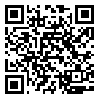BibTeX | RIS | EndNote | Medlars | ProCite | Reference Manager | RefWorks
Send citation to:
URL: http://ijme.tums.ac.ir/article-1-141-en.html
The main challenge in organ transplantation is the organ limitation. According to the law of organ donation, it's necessary to obtain family consent for organ donation from a brain-dead patient in addition to patient consent. In this research, we explored Tehran citizens' viewpoints regarding organ donation from beloved ones in case of brain death.
In this cross-sectional study, two interviewers selected 706 study participants by phone interview through random digit dialing during February to November 2010. Calls were made between 6 and 9pm on 5 workdays. Companies and organizations were excluded from the study. Only those over 18 year of age were enrolled in the study.
Of 1379 people who met the inclusion criteria, 706 subjects agreed to have the interview (response rate=51%). Of these, 83.3% (n=688) agreed with organ donation from family member if they had a donor card and suffered brain death. Agreement with organ donation was significantly associated with considering brain death to be real death (P=0.011) and considering it to be irreversible (P=0.028).
In conclusion it is necessary to design public education programs to change their misconceptions about brain death, and provide options to opt for organ donation in case of brain death on common cards such as drivers' license so that family members can make decisions about organ donation more easily when a beloved one suffers brain death.
Accepted: 2013/09/22 | Published: 2017/09/27
| Rights and permissions | |
 |
This work is licensed under a Creative Commons Attribution-NonCommercial 4.0 International License. |





